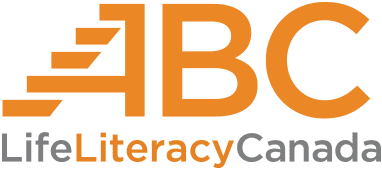LET’S EMPOWER OURSELVES!

Approximately 60 percent of Canadian adults are unable to obtain, understand and act upon health information and services and to make appropriate health decisions on their own. The majority are seniors, new immigrants and unemployed individuals.
People with low health literacy are more likely to misunderstand warning labels and are less likely to be able to identify their own medications, understand how to take their medications, and recognize the potential side effects.
October is Health Literacy Month, and it’s the perfect time to raise awareness about the importance of understanding and navigating the healthcare system effectively.
Let’s learn about these six valuable health literacy tips from ABC Life Literacy Canada to make informed and confident decisions about your well-being.
- Your local pharmacist is a trusted health care professional: Your pharmacist can do things like help you quit smoking, offer information and counselling, administer some vaccines, give you advice on how to take your medicine, as well as explain side effects of medication.
- It’s okay to ask questions: Dealing with medical professionals can be intimidating. If you don’t understand what your doctor or another health care professional tells you the first time, it’s okay to ask them to explain it another way.
- Knowing your medical history is important: Download our free medical history card and fill in details like what medication you’re taking, and your allergies—both now and in the past. Having this information with you will help better manage your health when you’re meeting with health professionals. It is also helpful in case of an emergency when you may not be able to talk.
- Keep track of your vaccinations: Sometimes we forget what vaccinations or immunizations we’ve had. There are free apps that can help you log these details so that you remember which vaccines you’ve had and when. Check out CANImmunize, a free, bilingual app to track your family’s immunizations on your smartphone and help you get vaccinated on time.
- Brush up on your rights as a patient: When you use health care services – at a doctor’s office, at the hospital, at a walk-in clinic, or anywhere else – you have rights. You also have responsibilities. Find out what they are before your next medical visit.
- Learn health vocabulary: Compliance, diagnosis, inpatient – the health care system has some complex words. Check out our handy health literacy glossary to learn definitions of common health terminology.
CLICK HERE to learn more health literacy resources and sign up for their ABC Health Matters workbooks

